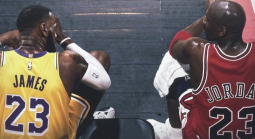Federal Judge Rules OK Tribal Gaming Compacts Automatically Renewed Jan. 1
OKLAHOMA CITY — A federal judge ruled Tuesday that Oklahoma’s tribal gaming compacts automatically renewed on Jan. 1, handing a victory to the tribes who sued Gov. Kevin Stitt to renew them.
 *No hidden fees. Everything for $5 per player *Accepts Amazon Cards, Gift cards, Bitcoin *Open an account in less than a minute *2 Week Free Trial *Hundreds of leagues, live betting - 99.9% uptime *Mobile platform available *Live dealer casino *Offices in Costa Rica, Expansion into Philippines *Mandarin Chinese, 日本人の, 한국, Fillipino, việt Click here to visit PricePerPlayer.com |
Two tribes, the Comanche Nation and the Otoe-Missouria, had negotiated new compacts with the governor earlier this year. The state Supreme Court struck down those compacts last week.
Stitt had argued that the tribal gaming compacts with the state’s 39 tribes were open for renegotiation following their 15-year-end on Dec. 31, 2019.
On Tuesday, U.S. District Court Judge Timothy DeGiusti ruled that the state’s tribal gaming compacts automatically renewed on Jan. 1 and are, therefore, not automatically open to renegotiation. DeGiusti rejected Stitt’s argument that the compacts — which define how much of their gambling revenue the tribes must pay to the state and which games are allowed — had expired.
Joined by many other Oklahoma tribes, three of the state’s most powerful tribes, the Cherokee, Chickasaw and Choctaw nations, sued the governor late last year in this case regarding the standing of the compacts signed in 2005.
Stitt suffered another defeat in court last week from his compact renegotiation efforts.
On July 21, the Oklahoma Supreme Court ruled with a 7-1 decision that the compacts signed in April by Sitt, along with Comanche Nation Chairman William Nelson Sr. and Otoe-Missouria Tribe Chairman John Shotton, are invalid under Oklahoma law.
The ruling stated that Stitt lacked the authority to enter into and bind the state to compacts with Indian tribes that authorize gaming activity prohibited by the state law. The new compacts had allowed for wagering on sports and house-banked and table games.
According to the court’s decision in that case, any revenue from such games is prohibited because the Legislature had not voted for it to become legal under state law.
The Constitution has reached out to a spokesperson for the Comanche Nation and the Otoe-Missouria Tribes regarding what will follow the two rulings. At issue is if they will appeal the Supreme Court decision or if they will return to the old compacts in place before signing the new agreements in April.
No comment was available Tuesday.
Stitt expressed disappointment at the ruling.
“It confirms my fears, and the fears of many fellow Oklahomans, that the State entered into a poorly negotiated deal and now we must bear the cost of this mistake,” Stitt said in a statement. “The federal court determined that the 2004 Gaming Compact autorenewed for 15 years because of an action taken by an agency’s unelected board to reissue licenses for gaming at horse racing tracks.”
House Minority Leader Emily Virgin, D-Norman, released a statement calling on Stitt to end his pursuit for a legal ruling that agrees with his position on the compacts.
“The governor’s compact negotiations are starting to look like a stimulus package for trial lawyers,” Virgin said. “Having already spent $1.5 million, the governor is wasting money that could be spent on resources that help our citizens. If the governor continues to pursue this through the appeals process, more money will be spent on lawsuits that could have instead helped schools, our state’s IT infrastructure, or our healthcare community. I encourage the governor to reflect on his position and ask if continuing a pursuit with an uncertain outcome is worth the risk of not protecting Oklahomans.”
Matthew Morgan, chair of the Oklahoma Indian Gaming Association, and Cherokee Nation Principal Chief Chuck Hoskin Jr. said in separate statements that the court affirmed what the tribes knew.
“We appreciated that the court moved quickly to confirm ... the plain language of our intergovernmental agreements mean what they mean, and here, those words mean our gaming compacts automatically renewed January 1, 2020,” Morgan said.
“Everything in our compact now remains the same, and we hope we can move forward and build a relationship built on respect with Gov. Stitt in the future,” said Hoskin.
The tribes argued in the lawsuit filed Dec. 31 by the Cherokee, Choctaw and and Chickaw nations and later joined by six other tribes, that a provision in the compacts approved by Oklahoma voters in 2004 allowed for the automatic renewal of the compacts.
That provision says the compact renews automatically if other organizations were authorized to offer electronic gaming, other than pari-mutuel wagering on live horse racing tracks, were approved.
The state argued that only the Legislature could authorize electronic gambling and that the Oklahoma Horse Racing Commission, which approved electronic gaming at the tracks, only issued licenses.
“The Court is not persuaded by this argument and rejects the State’s narrow view of ‘governmental action,’ which is inconsistent with a common understanding of that term,” DeGiusti wrote. “The Court finds that these technical definitions are not required by the Compacts and their use would be inconsistent with federal contract principles.”
Under the compacts, tribes pay the state “exclusivity fees” between 4 percent and 10 percent on gambling revenue in exchange for the exclusive right to operate casinos. The tribes paid the state about $150 million in exclusivity fees last year, most of it for public schools.














